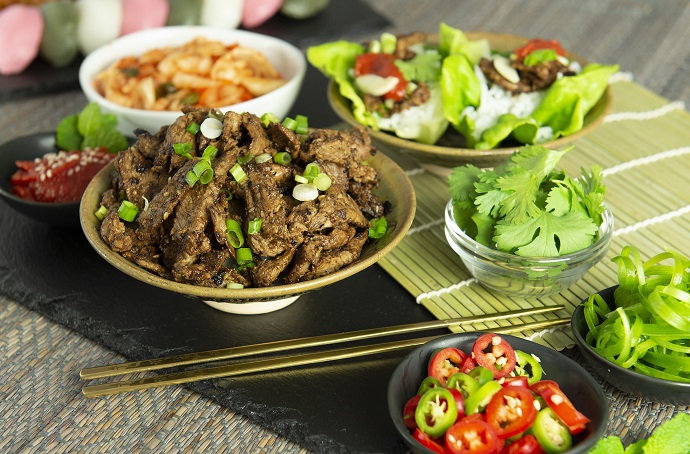Introduction: South Korean Cuisine
South Korean cuisine is known for its bold flavors and unique combination of spices and ingredients. Korean dishes are often characterized by the use of meat, including beef, pork, and chicken, as well as seafood. However, with the rise of vegetarianism and veganism around the world, many people are wondering if these dietary restrictions can be accommodated in South Korean cuisine.
Vegetarianism and Veganism in South Korea
Vegetarianism and veganism are still relatively uncommon in South Korea, with meat being a staple ingredient in most meals. However, there is a growing awareness of the benefits of plant-based diets, and more people are choosing to adopt these lifestyles. In response to this trend, there has been an increase in vegetarian and vegan options in South Korean cuisine, although they are still not widely available.
Traditional Korean Dishes with No Meat
Many traditional Korean dishes can be made without meat, and are suitable for vegetarians and vegans. One example is bibimbap, a dish made with rice, vegetables, and sometimes egg, which can easily be made without meat. Another popular dish is japchae, a stir-fried noodle dish that is typically made with beef, but can be made with tofu or mushrooms instead. There are also a variety of soups and stews that are traditionally made without meat, such as doenjang jjigae, a soybean paste soup.
Popular Korean Dishes with Vegetarian Alternatives
In recent years, there has been a growing demand for vegetarian and vegan alternatives to popular Korean dishes. One example is bulgogi, a marinated beef dish that is typically served with rice and vegetables. Vegetarian alternatives to bulgogi can be made with tofu or mushrooms, and are just as flavorful and satisfying as the original dish. Another popular Korean dish is kimchi jjigae, a spicy stew made with kimchi and a variety of vegetables. This dish can be made with tofu or other plant-based protein sources.
The Rise of Vegetarian and Vegan Restaurants in South Korea
As the demand for vegetarian and vegan options has grown in South Korea, so too has the number of vegetarian and vegan restaurants. These restaurants specialize in plant-based cuisine, and offer a wide variety of dishes that cater to different dietary restrictions. Many of these restaurants also use local, organic ingredients, making them a great option for those who are concerned about the environment and animal welfare.
Conclusion: South Korea’s Evolving Food Scene
South Korea’s food scene is rapidly evolving, with more people choosing to adopt plant-based diets and demand for vegetarian and vegan options increasing. While traditional Korean cuisine is still heavily meat-based, there are plenty of dishes that can be made without meat, and a growing number of restaurants that specialize in plant-based cuisine. As South Korea continues to embrace new dietary trends, it is likely that vegetarian and vegan options will become even more widely available in the years to come.

